| Article ID | Journal | Published Year | Pages | File Type |
|---|---|---|---|---|
| 2012365 | Pharmacological Reports | 2009 | 8 Pages |
Treatment with amantadine (AMA), an N-methyl-D-aspartate (NMDA) receptor antagonist and antidepressant drug, increased the antidepressant activity of subsequent drugs in experimental studies and in patients suffering from treatment-resistant depression (TRD). Recent evidence indicates that depression may be accompanied by activation of an inflammatory response. These data indicate that pro-inflammatory cytokines may play a role in the etiology of depression, particularly in TRD. The present in vitro study shows the ability of AMA, used at concentrations between 10−7 to 10−5 M, to reduce the production of the pro-inflammatory cytokines, specifically interferon-γ (IFN-γ) and tumor necrosis factor-α (TNF-α). In addition, AMA treatment increased the production of the negative immunoregulator, interleukin-10 (IL-10). Furthermore, the combined treatment of AMA with fluoxetine (FLU), but not imipramine (IMI), had a stronger immunomodulatory effect on cytokine production than AMA alone. The above data provide additional rationale for the treatment of patients suffering from depression with a combination of AMA and a selective serotonin reuptake inhibitor.
